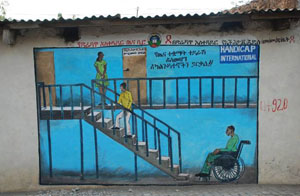Justice
In this section, you will be able to learn about the concept of justice, which is an important concept that will help you during your interaction with individuals, families and communities at large.
Justice is a complex ethical principle and it entails fairness, equality and impartiality; in other words, it is the obligation to be fair to all people. Most health professionals will understand about justice without necessarily having come across the word itself. The concept of justice will become clearer if you understand the meaning of two categories of justice: distributive justice and social justice.
Distributive justice means that individuals have the right to be treated equally regardless of ethnic group, gender, culture, age, marital status, medical diagnosis, social standing, economic level, political or religious beliefs, or any other individual characteristics. Everyone should be treated in the same way.
Social justice is based on the application of equitable rights to access and participation in all aspects of goods and services provided in a society, regardless of their individual characteristics. Everyone should have access to the same things that might improve their health. As a health professional, you will be able to carry out distributive and social justice by enabling the inclusion and empowerment of all people living within your area to exercise their rights.

Case Study: Justice challenge
Example 1: Suppose a health professional, Fantaye, visits Mr Lemma's family to carry out routine antenatal care and check the pregnancy status of Mr Lemma's wife, Mrs Lemlem. The family of the health professional has a family dispute with Mr Lemma's family and she only spends a few minutes with Mrs Lemlem and doesn't tell her about all the services that are available for women when they are pregnant.
Example 2: Another health professional is working in a community which is spread out over a large rural area. She is too lazy to go to the farthest homes to invite them to participate in an environmental sanitation campaign.
Look at the two examples above. Are these examples where social justice or distributive justice is not being carried out?
In both these examples justice is not being carried out. It is not fair that someone gets poorer services because they come from a particular family that is in dispute with the health professional (lack of social justice) or live too far away (lack of distributive justice) to be included in preventive health activities.
Why is justice important?
If you are not fair to individuals and community groups in your vicinity while practising your profession, you will not be able to gain public trust and this will negatively affect your practice. As a health professional you should be fair and maintain high ethical standards at all times, including confidentiality and truthfulness towards all your clients equally. However, as some of the examples in this study session have shown, you will be faced with dilemmas that are difficult to resolve in harmony with the concepts of respecting autonomy and informed consent, and reconciling the demands of beneficence and nonmaleficence.